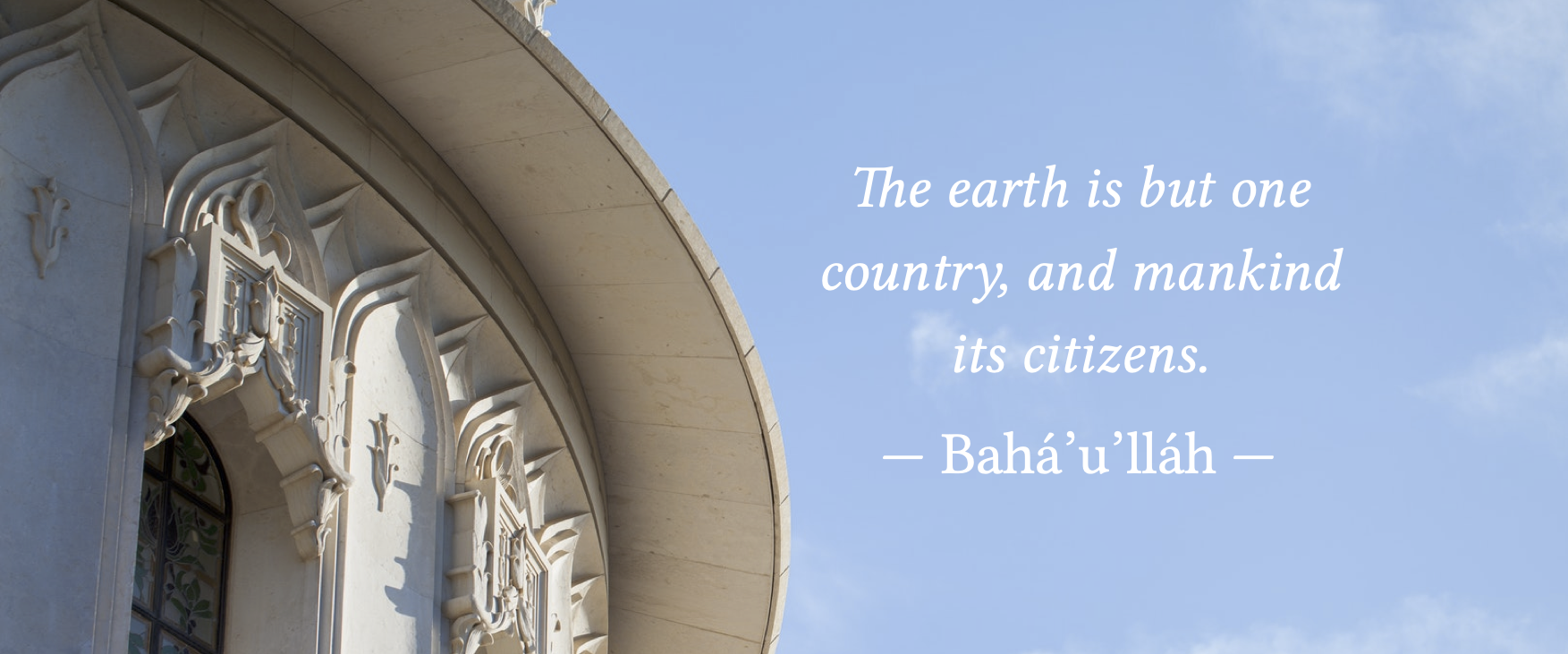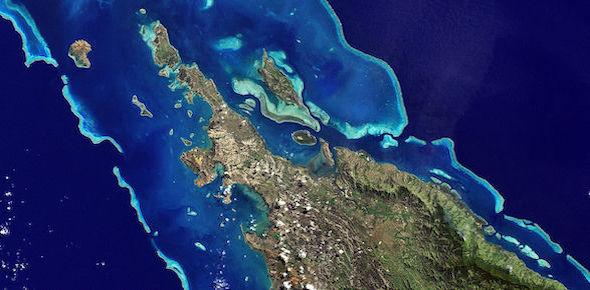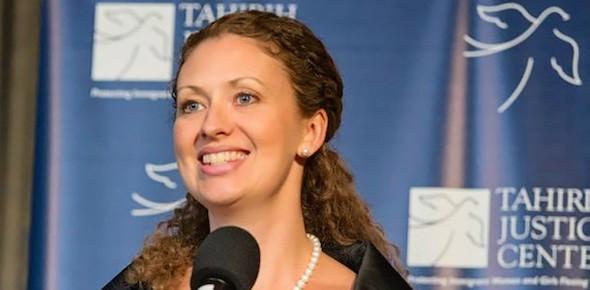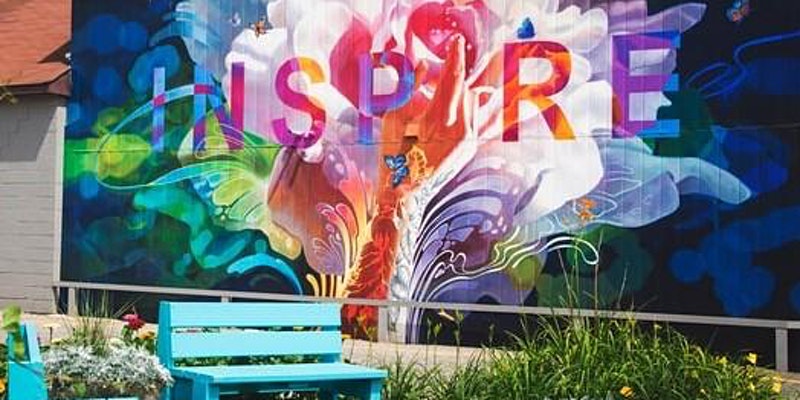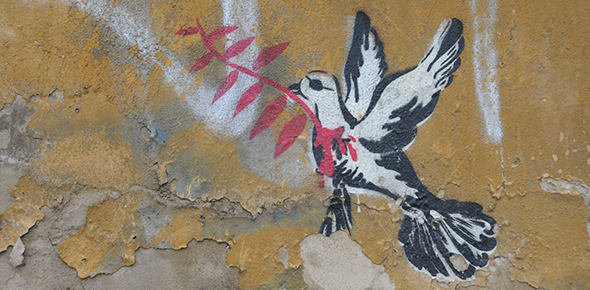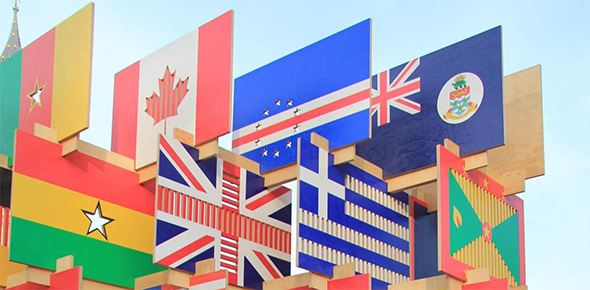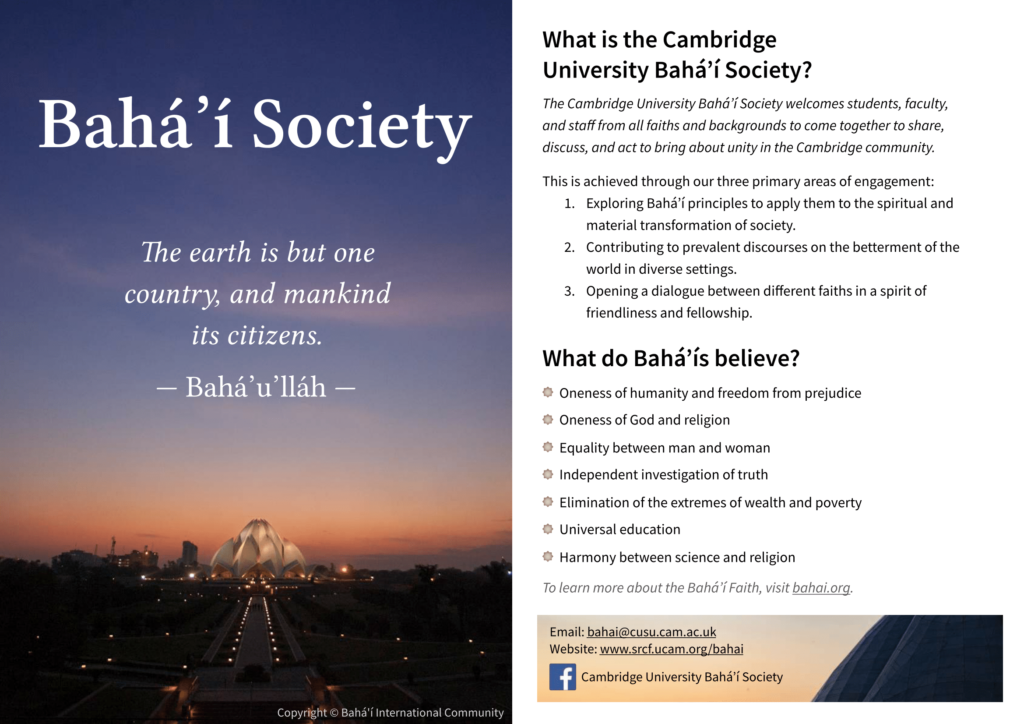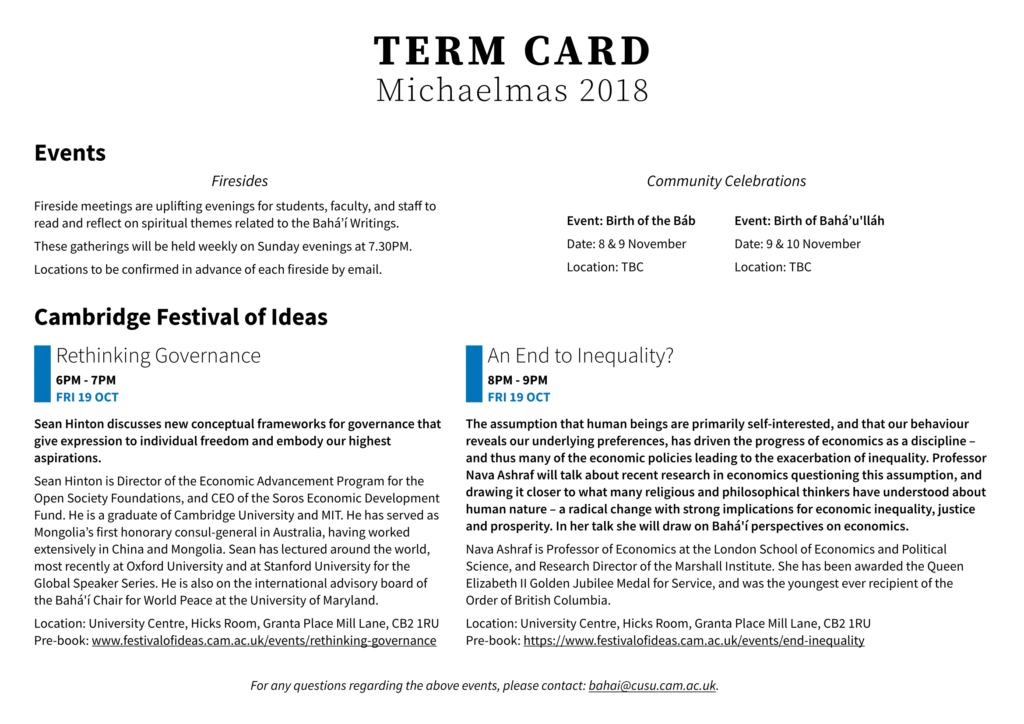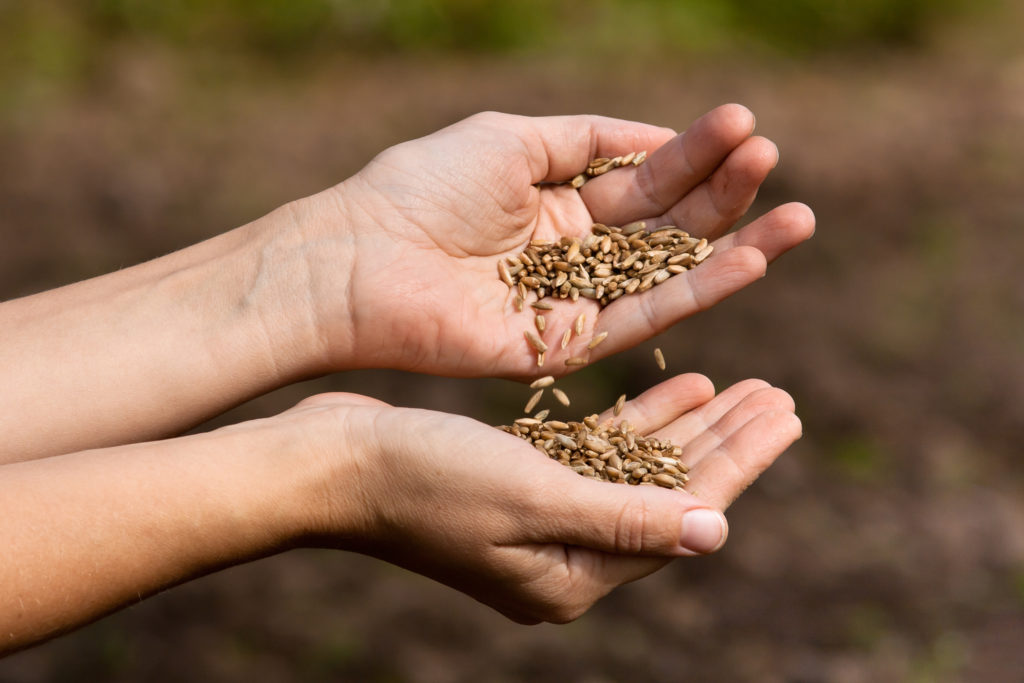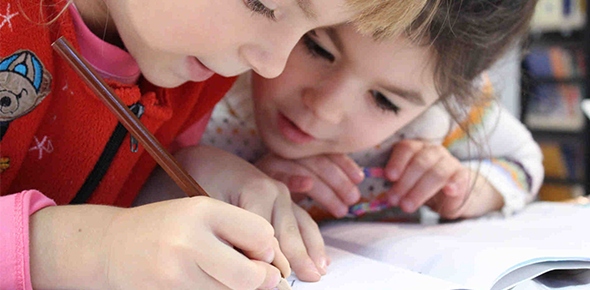
Education: The Evolutionary Engine of Civilisation
Date: Sunday, 26 March, 3:00pm-4:30pm
Venue: Sidney Sussex College, William Mong Hall, Sidney Street, CB2 3HU
Ongoing, accelerating and escalating global crises may lead some to despair. From an evolutionary perspective, however, this may not be just another random resurgence of trouble and conflict in the world: we may be experiencing birth pangs of the next phase in the unfolding of civilisation.
This period of intense transformation is ripe with occasions for genuine breakthrough as well as spectres of catastrophic breakdown. Humankind is becoming painfully aware of its essential interdependence and unity – learning, in profound and tangible ways, that “the earth is but one country, and mankind its citizens” (Bahá’u’lláh, circa 1880).
From simple bands of hunter-gatherers, our species has emerged, through increasing complexity and deepening cooperation, into tribal societies, city-states and nation-states. Now we stand at the threshold of an emerging world society and the possibility of global civilisation.
There is a fundamentally ethical dimension to this evolution: from primordial animalistic egoism and self-love, advancing towards various degrees of limited social altruism and loyalties, and now approaching the possibility of genuine universal coherence and belonging.
Alongside this ethical dimension, workings of an educational momentum can be seen: human potential would have remained dormant, unrealised, were it not for some form of active educational influence – left to mere ‘cumulative self-learning’, neither individual humans nor our collective species could have attained to their inherent potentialities.
The effects of this educational impulse run like a story line in the annals of history. Responding, though reluctantly, to the promptings of this momentum, peoples have progressively attained to the intellectual, moral and spiritual capacities that serve to civilise human character. Today, the opportunities offered by a profoundly global perspective give this age-long process entirely new dimensions and new meaning, opening civilisational prospects undreamt of in earlier ages.
Exploring this narrative of recurring social, ethical and spiritual education can help us to understand the dynamics of constructive and destructive forces in history.
Dr Partow Izadi explores these insights in a conversational session organised by the Cambridge University Bahá’í Society. Dr Izadi is a Senior Lecturer at the University of Lapland. His areas of expertise include systems theory, global education, evolution of civilisation and universal ethos.
Registration page: https://www.festival.cam.ac.uk/events/education-evolutionary-engine-civilisation
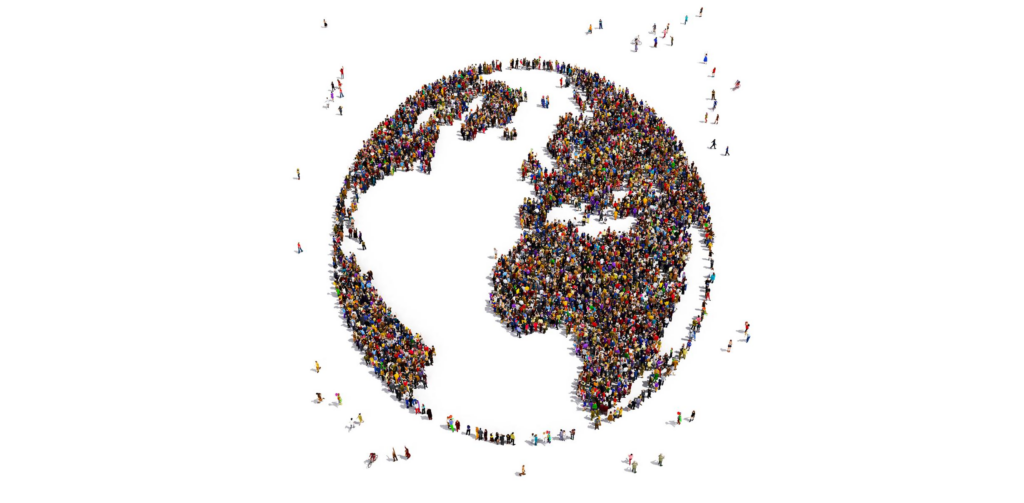
‘Eleven’: The Rising Global Population and the Future of Humanity
Date: Wednesday, 29 March, 8:00pm-9:00pm
Venue: Online (Zoom Webinar)
United Nations projections show the global population reaching 11 billion and the world economy growing 500% by the end of this century. Can the planet accommodate 3 billion more people when our current ecological footprint already exceeds Earth’s biocapacity? This question will preoccupy humanity throughout this century, affecting everything we do from designing cities to producing food to using energy. Our mission is daunting. Somehow, we have to support 40% more people, raise billions out of poverty and reduce our ecological footprint to the sustainable level it was when we were just 4 billion. However, every facet of our social, economic and political order – indeed the totality of the dominant global culture – compels us to maintain the status quo. Clearly, we have to change direction.
Join Paul Hanley, journalist, author of the award-winning book ELEVEN and Bahá’í, as he considers how we got into this predicament and maps a way forward.
Paul is a recipient of the Canadian Environment Award, the Meewasin Conservation Award, the Saskatchewan Sustainability Award and the Rockefeller Foundation’s Food System Vision 2050 Prize. His book ELEVEN received the 2015 University of Saskatchewan President’s Award for Non-fiction. His biography Man of the Trees: Richard St Barbe Baker, the First Global Conservationist features an introduction by Jane Goodall and a foreword by HRH King Charles. He has published a total of six books and 1,600 articles on the environment, sustainable development, agriculture and other topics. Alongside his writing, Paul has extensive practical experience in organic gardening, living on an off-grid acreage in Saskatchewan for 10 years, and helping to build Saskatchewan’s organic farming movements.
Registration page: https://www.festival.cam.ac.uk/events/eleven-rising-global-population-and-future-humanity
Update: You can watch a recording of this talk on our YouTube channel at: https://www.youtube.com/watch?v=oDPAUkoStJQ
